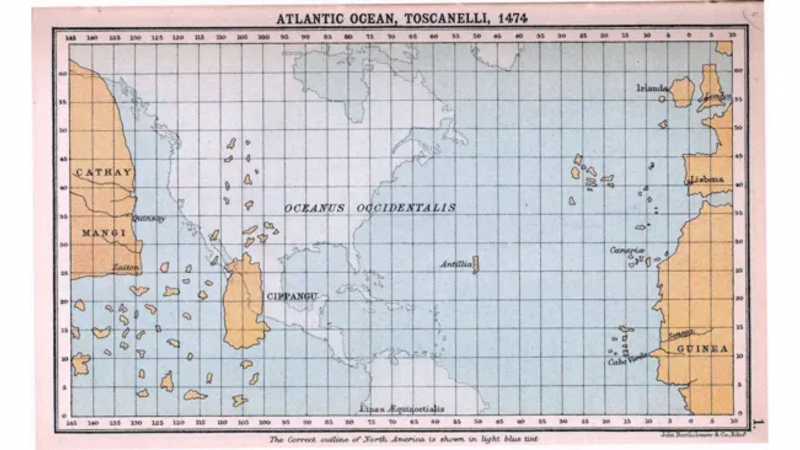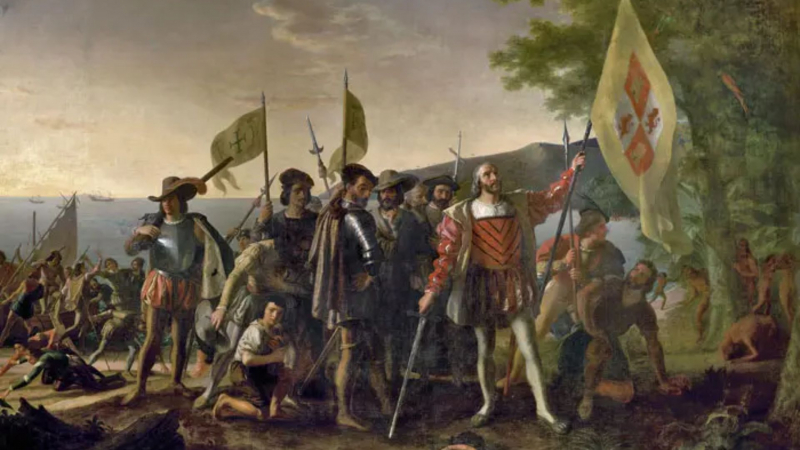Christopher Columbus

“You can never cross the ocean unless you have the courage to lose sight of the shore.” – Christopher Columbus
Christopher Columbus (1451-1506), an Italian adventurer, colonizer, and navigator, was born in Genoa. He is known as the main European discoverer of the Americas, and he was instrumental in bringing the Americas to the forefront of western consciousness. His discoveries and travels provided the groundwork for European colonization of Latin and North America later on.
Christopher Columbus was born in what is now Northwestern Italy, in the Republic of Genoa. His father was a middle-class wool dealer with modest beginnings for what he subsequently become. Columbus learned to sail at a young age and later worked as a business agent, sailing around Europe to England, Ireland, and later along Africa's west coast. He wasn't a scholar, but he was a self-educated man who read a lot about astronomy, physics, and navigation. He also learned Latin, Portuguese, and Spanish.
Christopher Columbus believed in the world's spherical shape (some Christians still held the view that the world was flat). Christopher Columbus, an ambitious man, aspired to locate a Western trade route to Asia's wealthy spice markets. Rather than traveling east, he planned to reach countries such as Japan and China by sailing west.
He asked the Catholic Monarchs of Spain for funds and support for his missions. As part of his offer, he stated that he wished to introduce Christianity to the "heathen nations" to the east. The Spanish kings consented to pay Columbus, partly for Christian missionary endeavors, but also to gain a competitive advantage in rich trading markets. One advantage of westward travel was that it avoided conflict with the Ottomans' expanding power in the east.
Columbus' first expedition ended in 1492. He planned to sail to Japan but ended up in the Bahamas, where he called his ship San Salvador. Columbus conducted four voyages, sailing widely across the Caribbean islands of Cuba, Jamaica, and the Bahamas, as well as to the mainland, to areas such as Panama. Columbus was not the first to arrive in America. Previous successful trips were Leif Ericson's Norse expedition. Columbus, on the other hand, was the first to travel to America and establish permanent settlements. Over the next 400 years, Columbus' travels and reports spurred all of the major European countries to want to colonize sections of America. Columbus was a talented navigator who believed wholeheartedly in the possibilities of adventure. In his diary notes, he stated that his steely will kept the group together when they thought they'd never reach land.
His dictatorial manner, though, caused conflict aboard the boats he steered. Columbus was intensely devout, and his tendency to be sanctimonious and judgmental of human flaws did not sit well with sailors who were more earthy and practical in their outlook on life. While he was religious in some ways, he also held the popular belief at the time that European Christians had moral superiority because they followed the one true faith. Although Columbus restrained some of his sailors' greatest excesses, he took back human slaves and looted indigenous people's property.
The Spanish monarchs designated Columbus Viceroy and Governor of the Indies on the island of Hispaniola as part of the agreement. He also gave his brothers the governorship. However, under the instructions of the Spanish monarchs, Columbus was captured and imprisoned in 1500. The governorship of the new colonies was accused of incompetence, misrule, and brutal behavior. Columbus and his brothers were released after several weeks in jail, but Columbus was no longer allowed to be governor of Hispaniola.
Columbus got more religious near the end of his life. He grew particularly interested in Biblical prophesies and wrote his own 'Book of Prophecies' (1505). He was also dissatisfied with his lack of public attention and perceived relegation by the Spanish rulers. In 1503, he sent a letter to the monarchs outlining his feelings of unrecognized sacrifice: “I came to serve you at the age of 28 and now I have not a hair on me that is not white, and my body is infirm and exhausted. All that was left to me and my brothers has been taken away and sold, even to the cloak that I wore, without hearing or trial, to my great dishonor.” – Lettera Rarissima to the Sovereigns, Fourth Voyage (7 July 1503)
Columbus died in 1506, at the age of 54, of a heart attack caused by reactive arthritis. The rigors of sailing across the seas undoubtedly taxed Columbus' health. He was frequently in physical agony from his excursions near the end of his life.
Many European Americans see Columbus as the man who helped place America on the map. Columbus Day is celebrated on October 12th in Spain and throughout the Americas. Others are more critical of Columbus, stating that his "finding" was not actually a discovery because the region was already populated and that his activities led to the mistreatment and genocide of the Native Americans who already lived there.


























